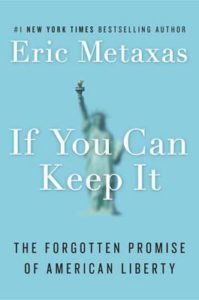Disruption and the Dearth of Good Options
Sarah Hoyt has yet another interesting post over at her place. As usual, she makes me think and it ties into much off the research I've been doing for my current book series. Go read it for the full Sarah effect, but the gist of her post is that the same stick of disruption whacking is doing the same to every facet of human activity. She's right, but that is not the scary part.
The Good News is There is No Good News
The part that should terrify everyone is we are just entering the disruption. Worse, we don't know which direction it will travel. Will the technologies Sarah mentioned fundamentally transform human society and, possibly, supplant it? That's certainly a possibility and for those who assume that forward progress in technology is an immutable fact, a given. In fact, it is the dominant position.
That position, though, involves considerable pain. One example: once the disruption is in full bloom, we will have surplus population relative to the work needed. Automation will replace nearly every repetitive job in every industry. Not just manufacturing, but every industry. I can't think of a single one that won't be impacted. What do we do with the extra people? The usual human method of shedding population involves violence in large quantities.
An aside for those how think they're in a bullet-proof industry. You're not. If it involves routine processes, you are replaceable, whether that process is physical or mental. The current crop of robots have already transformed manufacturing. Almost no one will dispute that. But what of a medical diagnosis? An AI is already in development to function as a primary care practitioner and the long-term prognosis for the medical field is machine-based. The law? We already have computers to do taxes (poorly in the case of Timothy Geithner) and wills.
Maybe you build houses? Safe as it gets, right? Meet the future.
Even with the automation in manufacturing, they're still on the edge of innovation. What happens when every home has a 3D printer and uses open-source plans to make most of their household possessions? It's reminiscent of Frederik Pohl's excellent sci-fi story, The Midas Plague. Which, I was thrilled to see, is available for free.
(Sorry for the interruption. Love that story, so I took a break . . .)
The Bad News is Worse
That's the future, as much as I can see and by definition limited, if technology remains ascendant. It's not the only possibility, though. We have plenty examples from the past to see alternative paths, most of them wildly unpleasant.
We take our toys and the infrastructure that allows for them for granted. Those systems are relatively fragile and vulnerable to human neglect or sabotage. The Luddites haven't taken to the streets yet, but they will. They may hamper innovation, bring it to a stop, or even manage to set it into retrograde. The latter is possible if the Luddites decide that the STEM fields should be subject to opinion and the same lack of rigor that the social sciences maintain. That's the best case scenario for the disruption heading negative.
The next-worst case is deliberate sabotage, combined with totalitarian control of the population. For that scenario, the only useful technologies to survive will be those that enhance the state, the theocrat, or the monarch, depending on how the rulers choose to present themselves. North Korea is a prime example of what could become ordinary. A thoroughly ruthless dictatorship that uses tech to control the populace and prey on neighbors. Any deviation from orthodoxy will be detected and eradicated.
A common misconception is that such a thing could not happen here. Ludicrous. Look to the educational campuses and their rigid intolerance of competing views. They go so far as to spy on students, Soviet-style. The riots on the streets of Berkley, when both the police and the university were forewarned, provide another data point. There is a faction that would be pleased to the role of Supreme Leader.
A total collapse of human civilization would be my next-to-last worst case. Imagine all the ungovernable regions in the world without the aid they currently received and see how long human 'decency' holds. Starving people will not worry about niceties. They'll love their neighbor - in a soup, or on a spit.
Worst case? We kill ourselves off and the roaches or AI-enabled-robots with Austrian accents take over.
Pick your scenario, make your plans, plan to be flexible, and know that it all can disappear in a blink.










